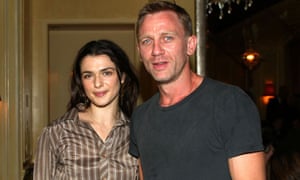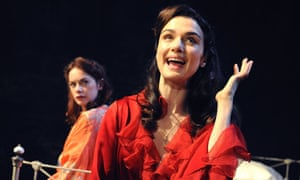 |
| Franz kafka THE METAMORPHOSIS Leizip, 1916, first edition |
The Metamorphosis
I
As Gregor Samsa awoke one morning from uneasy dreams he found himself transformed in his bed into a gigantic insect. He was lying on his hard, as it were armor-plated, back and when he lifted his head a little he could see his domelike brown belly divided into stiff arched segments on top of which the bed quilt could hardly stay in place and was about to slide off completely. His numerous legs, which were pitifully thin compared to the rest of his bulk, waved helplessly before his eyes.
What has happened to me? he thought. It was no dream. His room, a regular human bedroom, only rather too small, lay quiet within its four familiar walls. Above the table on which a collection of cloth samples was unpacked and spread out—Samsa was a traveling salesman—hung the picture which he had recently cut out of an illustrated magazine and put into a pretty gilt frame. It showed a lady, with a fur hat on and a fur stole, sitting upright and holding out to the spectator a huge fur muff into which the whole of her forearm had vanished!
Gregor's eyes turned next to the window, and the overcast sky—one could hear raindrops beating on the window gutter—made him quite melancholy. What about sleeping a little longer and forgetting all this nonsense, he thought, but it could not be done, for he was accustomed to sleep on his right side and in his present condition he could not turn himself over. However violently he forced himself toward his right side he always rolled onto his back again. He tried it at least a hundred times, shutting his eyes to keep from seeing his struggling legs, and only desisted when he began to feel in his side a faint dull ache he had never felt before.
Oh God, he thought, what an exhausting job I've picked out for myself! On the road day in, day out. It's much more irritating work than doing the actual business in the home office, and on top of that there's the trouble of constant traveling, of worrying about train connections, the bad food and irregular meals, casual acquaintances that are always new and never become intimate friends. The devil take it all! He felt a slight itching up on his belly, slowly pushed himself on his back nearer to the top of the bed so that he could lift his head more easily, identified the itching place which was surrounded by many small white spots the nature of which he could not understand and was about to touch it with a leg, but drew the leg back immediately, for the contact made a cold shiver run through him.
He slid down again into his former position. This getting up early, he thought, can make an idiot out of anyone. A man needs his sleep. Other salesmen live like harem women. For instance, when I come back to the hotel in the morning to write up my orders these others are only sitting down to breakfast. Let me just try that with my boss; I’d be fired on the spot. Anyhow, that might be quite a good thing for me, who can tell? If I didn't have to hold back because of my parents I'd have given notice long ago, I'd have gone to the boss and told him exactly what I think of him. That would knock him right off his desk! It's a peculiar habit of his, too, sitting on top of the desk like that and talking down to employees, especially when they have to come quite near because the boss is hard of hearing. Well, there's still hope; once I've saved enough money to pay back my parents' debts to him—that should take another five or six years—I'll do it without fail. I’ll cut my ties completely then. For the moment, though, I'd better get up, since my train leaves at five.
He looked at the alarm clock ticking on the chest of drawers. Heavenly Father! he thought. It was half-past six and the hands were quietly moving on, it was even past the half-hour, it was getting on toward a quarter to seven. Had the alarm clock not gone off? From the bed one could see that it had been properly set for four o'clock; of course it must have gone off. Yes, but was it possible to sleep quietly through that ear-splitting noise? Well, he had not slept quietly, yet apparently all the more soundly for that. But what was he to do now? The next train went at seven o'clock; to catch that he would need to hurry like mad and his samples weren't even packed, and he himself wasn't feeling particularly fresh and energetic. And even if he did catch the train he couldn't avoid a tirade from the boss, since the messenger boy must have been waiting for the five o'clock train and must have long since reported his failure to turn up. This messenger was a creature of the boss's, spineless and stupid. Well, supposing he were to say he was sick? But that would be very awkward and would look suspicious, since during his five years’ employment he had not been ill once. The boss himself would be sure to come with the health insurance doctor, would reproach his parents for their son's laziness, and would cut all excuses short by handing the matter over to the insurance doctor, who of course regarded all mankind as perfectly healthy malingerers. And would he be so far wrong in this case? Gregor really felt quite well, apart from a drowsiness that was quite inexcusable after such a long sleep, and he was even unusually hungry.
As all this was running through his mind at top speed without his being able to decide to leave his bed—the alarm clock had just struck a quarter to seven—there was a cautious tap at the door near the head of his bed. "Gregor," said a voice—it was his mother's—"it's a quarter to seven. Didn't you have a train to catch?" That gentle voice! Gregor had a shock as he heard his own voice answering hers, unmistakably his own voice, it was true, but with a persistent horrible twittering squeak behind it like an undertone, which left the words in their clear shape only for the first moment and then rose up reverberating around them to destroy their sense, so that one could not be sure one had heard them rightly. Gregor wanted to answer at length and explain everything, but in the circumstances he confined himself to saying: "Yes, yes, thank you, Mother, I'm getting up now." The wooden door between them must have kept the change in his voice from being noticeable outside, for his mother contented herself with this statement and shuffled away. Yet this brief exchange of words had made the other members of the family aware that Gregor was, strangely, still at home, and at one of the side doors his father was already knocking, gently, yet with his fist. "Gregor, Gregor," he called, "What's the matter with you?" And after a little while he called again in a deeper voice: "Gregor! Gregor!" At the other side door his sister was saying in a low, plaintive tone: "Gregor? Aren't you well? Do you need anything?" He answered them both at once: "I'm just about ready," and did his best to make his voice sound as normal as possible by enunciating the words very clearly and leaving long pauses between them. So his father went back to his breakfast, but his sister whispered: "Gregor, open the door, I beg you." However, he was not thinking of opening the door, and felt thankful for the prudent habit he had acquired on the road of locking all doors during the night, even at home.
His immediate intention was to get up quietly without being disturbed, to put on his clothes and above all eat his breakfast, and only then to consider what else had to be done, since he was well aware his meditations would come to no sensible conclusion if he remained in bed. He remembered that often enough in bed he had felt small aches and pains, probably caused by lying in awkward positions, which had proved purely imaginary once he got up, and he looked forward eagerly to seeing this morning's delusions gradually evaporate. That the change in his voice was nothing but the precursor of a bad cold, a typical ailment of traveling salesmen, he had not the slightest doubt.
To get rid of the quilt was quite easy; he had only to inflate himself a little and it fell off by itself. But the next move was difficult, especially because he was so unusually broad. He would have needed arms and hands to hoist himself up; instead he had only the numerous little legs which never stopped waving in all directions and which he could not control in the least. When he tried to bend one of them the first thing it did was to stretch itself out straight; and if he finally succeeded in making it do what he wanted, all the other legs meanwhile waved the more wildly in the most painful anal unpleasant way. "But what's the use of lying idle in bed?" said Gregor to himself.
He thought that he might get out of bed with the lower part of his body first, but this lower part, which he had not yet seen and of which he could form no clear picture, proved too difficult to move; it shifted so slowly; and when finally, almost wild with annoyance, he gathered his forces together and thrust out recklessly, he had miscalculated the direction and bumped heavily against the lower end of the bed, and the stinging pain he felt informed him that precisely this lower part of his body was at the moment probably the most sensitive.
So he tried to get the top part of himself out first, and cautiously moved his head toward the edge of the bed. That proved easy enough, and despite its breadth and mass the bulk of his body at last slowly followed the movement of his head. Still, when he finally got his head free over the edge of the bed he felt too scared to go on advancing, for, after all, if he let himself fall in this way it would take a miracle to keep his head from being injured. And under no circumstances could he afford to lose consciousness now, precisely now; he would rather stay in bed.












